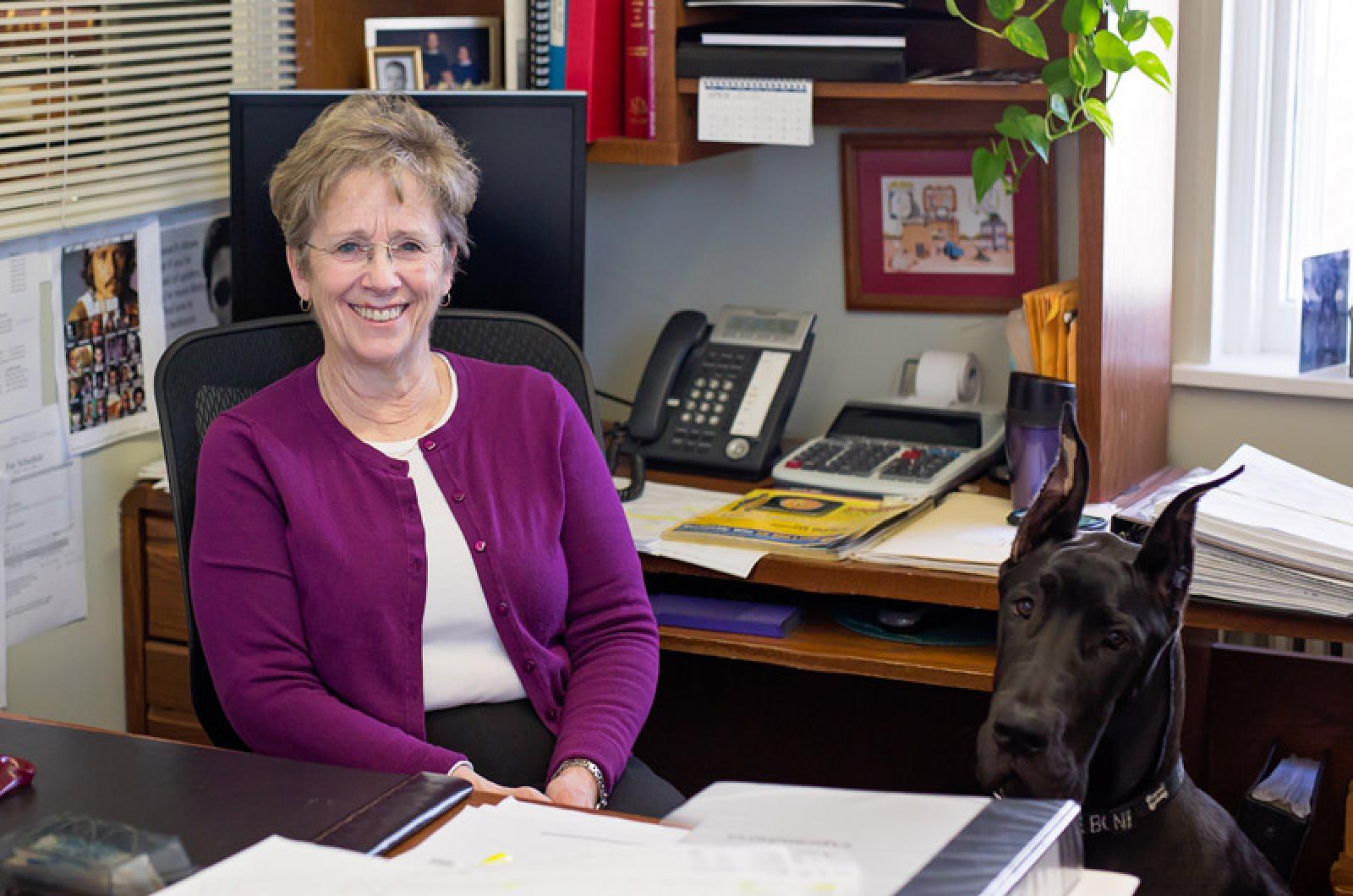Past the front guard and down the hallway at the Edgartown courthouse, Dianne Powers pulled down a large red book inside a vault at the registry of deeds and carefully flipped through the pages, each one protected in a plastic sleeve.
“I love the old stuff,” she said, pointing out one of the earliest documents from the 1600s, written by hand in the Wampanoag language. In a nearby room lined with shelves and oversized volumes, a few people stood at tables studying more recent land records. Around the corner, another vault contained the registered deeds that have resulted from questions or disputes over the years.
Many land records on the mainland have been lost to fire, Ms. Powers said, knocking on two wooden counters as she passed through the reception area. “We were very lucky.”
Back in her corner office overlooking the Old Whaling Church in the center of this town that is the county seat, the longtime register of deeds reflected on her 21 years in office, and her early experiences at the courthouse, where she worked for the previous register in the 1970s.
“When I worked here in the seventies, everything was done with typewriters and by hand,” she recalled. “Now it’s pretty much automated. It’s come a long way.”
Ms. Powers will retire next fall, leaving behind a much streamlined registry that continues to serve as a bridge to the Island’s past. All the records have been digitized, so even in the event of a disaster, most of the information would survive. Records going back to 1980 are also available online, with more on the way. But the physical records are still a centerpiece of the department.
“There is a lot of history that’s in those back rooms,” Ms. Powers said, motioning through the windows that overlook the reception area and archives. She noted the title examiners, homeowners and prospective buyers who use the archives on a regular basis.
“Part of the fun of working here is showing people what we have,” she said, noting that relatively few have seen inside the registry or even know that it exists. “It really is kind of a treasure to have all of this available to look at.”
History is also evident in the process itself. Despite the growing dominance of computers, Ms. Powers said, sometimes the old ways are still best. A large electric typewriter, for example, still sits on a table in her office, where visitors can use it to fill out forms or add information to documents.
“I’m not sure that the advantages outweigh the disadvantages,” she said of the changing technology. “Now if the power goes out, we’re sitting ducks, just like everyone else. Everyone is so dependent on computers and electricity and all of that. Fortunately power sources have improved over the years too, so we don’t have power outages very often.”
A heavy metal stamp on her desk indicated at least one technology that hasn’t needed to improve. She lugged the stamp across the desk and inserted a blank piece of paper to demonstrate. After clamping down, she rubbed the paper lightly with a bar of graphite to reveal an official land court seal. From there, she said, a land court certificate would be filed and transferred to microfilm.
“We do still have a little tiny bit of the old,” she said with a smile, “but not very much anymore.”
Over the years, Ms. Powers has also served on the West Tisbury school committee and board of selectmen, although she said being a selectman while serving as register was a challenge. “It’s pretty much a full-time job,” she said. “It was very hard to do that justice and do this justice.”
Apart from her role at the courthouse, she is also president of the Great Dane Club of America, which promotes pure breeding and conducts official dog shows, among other things. Ms. Powers has been sharing her office with Honey Bee, the youngest of her four Great Danes, whose toys were scattered at one end of the room on a recent morning. A number of photographs on the walls and desk show her award-winning dogs, including Sailor and Fancy, and the two-year-old Dani, who is still in training.
More dog shows are likely on the horizon, she said. And she hasn’t ruled out a return to town government, although she has no immediate plans for the future.
The decision to retire was itself a hard one, she said. Eventually, she decided sooner was better than later so that voters could choose her successor. Otherwise, she said, the timing would have required a temporary appointment to fill out her remaining term. Voters will elect a new register at the state elections in the fall.
Mixed feelings remained, Ms. Powers said this week, noting how much she has enjoyed her time at the courthouse. But she also looked forward to what the future might bring.
“I will miss the day-to-day routine of taking in the documents, sorting everything out, making sure it’s correct — and the interaction with people,” she said. “I’ll miss all of that. But I think I’m ready to try something new.”




Comments (2)
Comments
Comment policy »